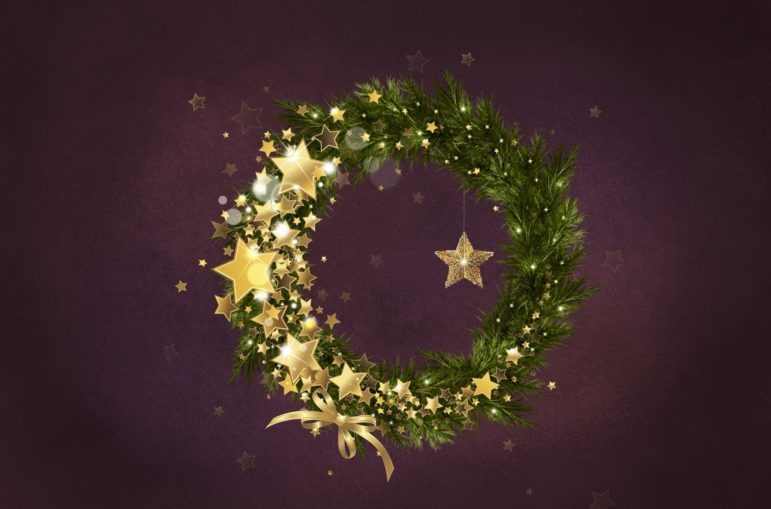TWH – Today we take a quick look back on articles you may have missed and some memories here at The Wild Hunt.

Image credit: Chantelle Thompson from Pixabay
Earlier this month, Eligiah Thornton spoke with Adrianne Blanks, a relative newcomer to the Asheville area, who released a new Pagan version of a beloved holiday carol. “The words didn’t really fit what I believed:” New seasonal music release reclaims Pagan roots”
Last year Antonio Pagliarulo shared how he “traded one family tradition for another” and described how his Christmas even changed his Italian family ritual for removing the evil eye in, “Old-World Magic Transformed My Christmas Eve.”
Also last year in a special Yuletide offering, Karl Seigfried wrote, “As we celebrate these long nights of midwinter, we ask you to bring the light that will grow around us and within us as we turn towards the unknown future of a new year beginning,” addressing Odin and giving thanks for his gifts at Midwinter, in his column “To Odin at Midwinter.”
In 2020, Manny Moreno covered the new research describing the benefits of gift giving, volunteering, and donating that produce an effect called the “Helper’s High,” which Aristotle called “eudaimonia” – that correct actions lead to the greater well-being of the individual. It was the counterpole to hedonia, actions that seek pleasure and avoid pain, in his article “Gifting may benefit the gifter even more.”

Image credit: Pixabay
In 2019, Jake Leibowitz talked with Cody & Alex who discussed their song “Throw them the Bones” and its connection to Reverend Mother Angela Wilson, Archdruid of the Wayist Druidic Order in “Druid poem brought to life in song.”
In 2018, Erick Dupree who returned to The Wild Hunt as a columnist earlier this week with “Pagan Voices: Welcoming the Solstice,” shared “the disguise of Christmas is much different, and it is covered in glamour magic unbecoming”, in “Come Darkness, Come Light.”

Image credit: M. Moreno
Finally, there is the ongoing concern about Christmas being overshadowed and a “war” on the holiday. Most of us reject that as nonsense from a needy and vocal minority of the largest religion on Earth with nearly 2.4 billion adherents, most of whom live harmoniously beside minority faiths including Pagans.
Earlier this week, David A. Graham of The Atlantic wrote that the “War on Christmas is Winning,” but not for the reasons that vocal Christian minority believes,
Americans still love Christmas, if not quite as much as they used to. In 1995, 96 percent celebrated the holiday, per Gallup; by 2019, that had dipped slightly, to 93 percent. What has changed significantly is the way people mark it. From 2005 to 2019, the portion of Americans who say their Christmas celebrations are “strongly religious” dropped from 47 percent to 35 percent. (The group that says its celebration is “somewhat religious” has stayed pretty stable, going from 30 percent in 2005 to 32 percent in 2019.) A majority of Americans are still willing to accept Christmas displays on public property (at least when they’re combined with Hanukkah displays), but that number sank from almost three-quarters in 2014 to just two-thirds in 2017.
Twelve years ago, TWH found Jason Pitzl-Waters wrote a response to the Washington Posts, On Faith site to their panel question:
“Keep Christ in Christmas!” is the familiar refrain of Christians who fear the secularization of the holy day celebrating the birth of Jesus, their savior. But in America, non-Christians often celebrate Christmas. According to a recent poll by the Christian group LifeWay Research, “A majority of agnostics or those claiming no preference (89 percent), individuals claiming other religions (62 percent), and even atheists (55 percent) celebrate Christmas along with 97 percent of Christians.” Do you need to be Christian to celebrate Christmas? What is Christmas all about?
He responded:
“I won’t get into the debate over whether early Christians appropriated December 25th from pre-Christian faiths, or came by that date honestly, but few can argue that much of what we now culturally consider “Christmassy” came from non-Christian/Pagan sources. Decorating with greenery, decorating trees, the exchanging of gifts, feasting, even the special seasonal attention towards the poor and less fortunate can be found in several Western pre-Christian Winter-time holidays. In addition, many cultures had their own narratives/traditions about the (re)birth of the sun/son, promising a return of life and light in a time of cold and darkness. I don’t say this to diminish Christianity, but only to point out that these Winter celebrations are a deep part of us, and whether we identify as Christian, Pagan, agnostic, or atheist, there is a draw towards the light and fellowship that has become an integral part of this time through the centuries.”
Happy Holidays from The Wild Hunt!
The Wild Hunt is not responsible for links to external content.
To join a conversation on this post:
Visit our The Wild Hunt subreddit! Point your favorite browser to https://www.reddit.com/r/The_Wild_Hunt_News/, then click “JOIN”. Make sure to click the bell, too, to be notified of new articles posted to our subreddit.
